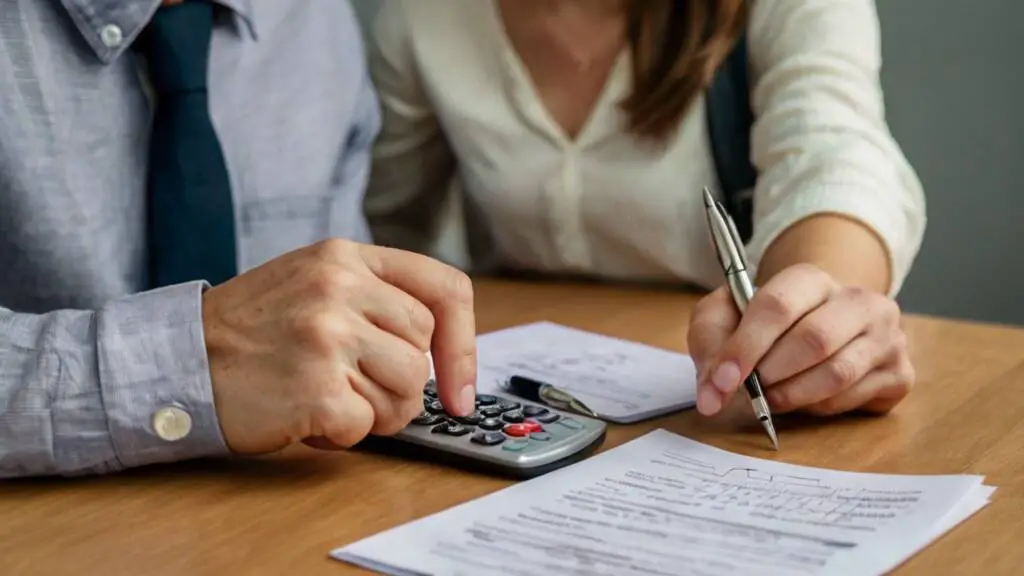Tips for Paying Off Debt Fast

It’s a familiar story for many: You open your mail or log into your financial accounts, and you’re greeted by a mountain of debt. Whether it’s student loans, credit card balances, or personal loans, it can feel overwhelming. Did you know that the average American household carries around $96,371 in consumer debt? That’s a staggering figure, but the good news is that you can take control of your financial future. Paying off debt quickly is not just a financial goal; it’s a pathway to peace of mind and economic freedom. Reducing your debt means less stress, more disposable income, and the opportunity to build wealth. In this blog post, we will offer practical and effective tips for paying off debt fast, so you can start living the life you want, debt-free.
Main Points
1. Assess Your Debt Situation
Before you can tackle your debt, you need to know exactly what you’re dealing with. Start by listing all your debts. Include the amounts owed, interest rates, and minimum payments for each. This inventory will give you a clear picture of your total debt and help you prioritize your repayment strategy.
Next, evaluate your overall financial picture. Compare your income to your monthly expenses to identify areas where you can make adjustments. Knowing how much money you have coming in and going out each month is crucial for creating a realistic budget.
2. Create a Realistic Budget
A budget is your roadmap to financial freedom. Start by tracking your spending habits for a month. Record every expense, no matter how small, to see where your money is going. This exercise can be eye-opening and will help you identify areas where you can cut back.
Once you have a clear understanding of your spending habits, allocate your funds wisely. Prioritize essential expenses like housing, utilities, and groceries. Then, allocate any remaining funds towards debt repayment. The goal is to spend less than you earn and use the difference to pay down your debt faster.
3. Choose a Repayment Strategy

There are several strategies you can use to pay off debt, but two of the most popular are the Debt Snowball Method and the Debt Avalanche Method. Choose the one that works best for your financial situation and personality.
Debt Snowball Method: This method involves paying off your smallest debts first to build momentum. Once a debt is paid off, you roll the amount you were paying into the next smallest debt. This approach can provide a psychological boost as you see debts disappearing one by one.
Debt Avalanche Method: With this method, you focus on paying off debts with the highest interest rates first. This approach minimizes the total interest you’ll pay over time, saving you more money in the long run.
4. Increase Your Income
Sometimes, cutting expenses isn’t enough. Increasing your income can accelerate your debt repayment process. Consider taking on a side hustle or freelancing in your spare time. There are countless opportunities to earn extra money, from ride-sharing and delivery services to online freelancing and remote work.
Another way to boost your income is by selling unnecessary items. Declutter your home and sell items you no longer need. You’d be surprised how much you can make from selling things that are just collecting dust.
5. Negotiate With Creditors
Don’t be afraid to reach out to your creditors and negotiate better terms. You may be able to secure lower interest rates or set up a more manageable payment plan. Creditors are often willing to work with you, especially if you have a good payment history.
If you’re struggling to make payments, ask about settlement options. Some creditors may be willing to accept a lump-sum payment at a reduced amount. This can be a win-win situation, as it helps you pay off the debt faster while allowing the creditor to recover a portion of what is owed.
6. Avoid Accumulating More Debt
One of the most important steps in getting out of debt is to stop accumulating more. Adopt a cash-only policy to prevent new debt from piling up. When you use cash, you’re forced to stick to your budget and avoid unnecessary spending.
Building an emergency fund is also crucial. An emergency fund can cover unexpected expenses, such as car repairs or medical bills, without resorting to credit. Aim to save at least three to six months’ worth of living expenses in your emergency fund.
Conclusion
Paying off debt may seem like a daunting task, but with a clear plan and determination, it’s entirely possible.
Let’s recap the main tips:
Assess your debt situation by listing all your debts and understanding your financial picture.
Create a realistic budget by tracking spending habits and allocating funds wisely.
Choose a repayment strategy, such as the Debt Snowball Method or Debt Avalanche Method.
Increase your income through side hustles, freelancing, or selling unnecessary items.
Negotiate with creditors for better terms or settlement options.
Avoid accumulating more debt by using cash and building an emergency fund.
Remember, each step you take brings you closer to financial freedom. Stay motivated and keep your eyes on the prize. You have the power to become debt-free and enjoy a more secure financial future.
We’d love to hear from you! Share your own tips or experiences in the comments section below. Let’s build a supportive community to help each other achieve financial wellness.
https://7thavewellnessblog.com/?p=5006
https://www.wellsfargo.com/
FAQs
Q: What are the most effective strategies to pay off debt fast?
A: Some effective strategies include paying more than the minimum on your monthly payments, using the snowball method to tackle one debt at a time, and considering debt consolidation options to lower your interest rates and monthly payments.
Q: How can I pay off my credit card debt quickly?
A: To pay off credit card debt fast, prioritize high-interest cards, make larger payments than the minimum due, and consider a balance transfer credit card to take advantage of lower interest rates.
Q: What is the snowball method in debt repayment?
A: The snowball method involves paying off your smallest debts first while making minimum payments on larger debts. This approach can motivate you by providing quick wins and momentum as you eliminate debts one at a time.
Q: How does debt consolidation work?
A: Debt consolidation combines multiple debts into a single loan, often with a lower interest rate. This can simplify your payments and help you pay your debt off faster, which can also positively impact your credit score.
Q: Should I look into debt consolidation if I have a lot of debt?
A: Yes, looking into debt consolidation can be a smart way to manage a lot of debt. It can provide relief by lowering interest rates and reducing the number of monthly payments you need to make.





